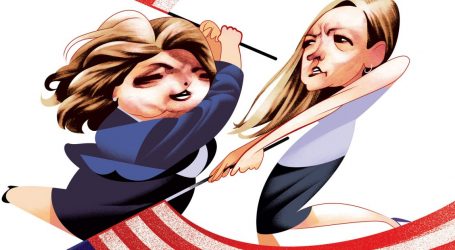Juneteenth is our Independence Day, but we’re still not free
https://content.jwplatform.com/libraries/GqX43ZoG.js
var playerInstance = jwplayer(“jwvideo_0PehuP3W52185”);
// Mobile Code
var auto = true;
if(jQuery( window ).width() 650 && !isPositionFixed){
jQuery(‘#jwvideo_0PehuP3W52185’).css({‘position’: ‘fixed’, ‘top’: ‘0px’,’width’:’650px’, ‘height’:’260px’, ‘z-index’: ‘9999’,’right’:’0px’});
jQuery(‘#jwcontentarea_0PehuP3W52185’).css({‘height’: ‘260px’});
}
if (jQuery(window).scrollTop() 650 && !isPositionFixed){
jQuery(‘#jwvideo_0PehuP3W52185’).css({‘position’: ‘fixed’, ‘top’: ‘0px’,’width’:’650px’, ‘height’:’260px’, ‘z-index’: ‘9999’,’right’:’0px’});
jQuery(‘#jwcontentarea_0PehuP3W52185’).css({‘height’: ‘260px’});
}
if (jQuery(window).scrollTop() < 650 && isPositionFixed)
{
jQuery('#jwvideo_0PehuP3W52185').css({'position': 'relative','width':'100%', 'height':'260px'});
jQuery('#jwcontentarea_0PehuP3W52185').css({'height': '0px'});
}
});
});
jwplayer("jwvideo_0PehuP3W52185").on('pause',function(){
jQuery(window).scroll(function(e){
jQuery('#jwvideo_0PehuP3W52185').css({'position': 'relative','width':'100%', 'height':'260px'});
jQuery('#jwcontentarea_0PehuP3W52185').css({'height': '0px'});
});
jQuery('#jwvideo_0PehuP3W52185').css({'position': 'relative','width':'100%', 'height':'260px'});
jQuery('#jwcontentarea_0PehuP3W52185').css({'height': '0px'});
});
jwplayer("jwvideo_0PehuP3W52185").on('adPause',function(){
jQuery(window).scroll(function(e){
jQuery('#jwvideo_0PehuP3W52185').css({'position': 'relative','width':'100%', 'height':'260px'});
jQuery('#jwcontentarea_0PehuP3W52185').css({'height': '0px'});
});
jQuery('#jwvideo_0PehuP3W52185').css({'position': 'relative','width':'100%', 'height':'260px'});
jQuery('#jwcontentarea_0PehuP3W52185').css({'height': '0px'});
});
jwplayer("jwvideo_0PehuP3W52185").on('stop',function(){
jQuery(window).scroll(function(e){
jQuery('#jwvideo_0PehuP3W52185').css({'position': 'relative','width':'100%', 'height':'260px'});
jQuery('#jwcontentarea_0PehuP3W52185').css({'height': '0px'});
});
jQuery('#jwvideo_0PehuP3W52185').css({'position': 'relative','width':'100%', 'height':'260px'});
jQuery('#jwcontentarea_0PehuP3W52185').css({'height': '0px'});
});
jwplayer("jwvideo_0PehuP3W52185").on('beforeComplete',function(){
jQuery(window).scroll(function(e){
jQuery('#jwvideo_0PehuP3W52185').css({'position': 'relative','width':'100%', 'height':'260px'});
jQuery('#jwcontentarea_0PehuP3W52185').css({'height': '0px'});
});
jQuery('#jwvideo_0PehuP3W52185').css({'position': 'relative','width':'100%', 'height':'260px'});
jQuery('#jwcontentarea_0PehuP3W52185').css({'height': '0px'});
});
}
Black people celebrate Juneteenth to mark our freedom from slavery, but that doesn’t mean slavery is over. And if we are not too careful, the freedom we have gained can be easily taken from us.
It has been over 150 years since the first Juneteenth commemoration. June 19, 1865 marked the announcement of the abolition of slavery in Texas—two-and-a-half years after President Lincoln’s Emancipation Proclamation, an executive order freeing the slaves, but which could not be enforced in rebellious Confederate states that has seceded from the Union and were not under federal control. Since that time, the holiday has been a coming together for African Americans, an Independence Day in many ways that the Fourth of July never was.
Today, we must remind ourselves that freedom isn’t free, nor is everyone free. There was a special Juneteenth event in my neighborhood of Philadelphia, home of historic Eastern State Penitentiary—the nation’s first penitentiary, in operation from 1829 until 1970 and the place where solitary confinement was born. This year, the Human Rights Coalition held a #SolidarityNotSolitary Juneteenth parade to celebrate the abolition of slavery, and to build the movement against modern-day slavery. Although the prison that pioneered solitary confinement is now a museum, the practice of isolating prisoners for 22-24 hours each day, without human contact for days, years or decades, is still a reality.
Throughout the nation, as many as 80,000 prisoners, disproportionately inmates of color, are on lockdown, also known as the hole, administrative segregation, “restricted housing unit,” “segregated housing unit” or the “SHU.” Solitary confinement does not work, and it destroys people mentally and physically. According to the U.N. Special Rapporteur on Torture Juan Méndez, the practice of isolating human beings for over 15 days is torture, and should be prohibited in most cases.
Yet, the U.S., which has positioned itself as a beacon of human rights, has not banned solitary confinement. This, in the world’s prison capital, the nation with over 2 million inmates, the world’s largest incarcerated population. Some of these prisoners, 159,000 as of 2012 and over 60 percent Black and Latino, are serving life without parole, while some are juvenile lifers, a uniquely American phenomenon. And let’s not forget that the Thirteenth Amendment, which abolished involuntary servitude, provided a loophole for prisons.
Black folks must celebrate how far we have come from bondage, while also realizing that the powers that be will try to return us to a state of slavery if we fail to remain vigilant and let them get away with it. Twenty-first century slave masters, slave masters’ wives, and their overseers remain. Trump and his overseer Jeff Sessions want to ramp up the war on drugs, bust Black people and use them to populate their private prisons and get rich in the process—which, ultimately, is what slavery is all about.
Over 6 million Americans–including 1 in every 13 African Americans—cannot vote due to felony disenfranchisement laws that have stripped them of their rights as citizens. Under prison-based gerrymandering, white communities count their Black prisoners as residents of the community to draw district lines and gain voting power, rendering Black bodies the modern-day version of three-fifths of a human being.
Thirty-four states have voter ID laws and other forms of voter suppression designed to deprive Americans—disproportionately Black people–the right to vote. States such as North Carolina have turned voter suppression into an art form. In the hotly contested Congressional race in Georgia’s Sixth Congressional district, Republican candidate Karen Handel, once led an illegal purge of 50,000 voters as Georgia secretary of state. And through the Interstate Voter Registration Crosscheck Program, Republicans across the nation are scrubbing the voter rolls and denying thousands upon thousands of Americans their voting rights in the name of so-called “voter fraud.”
If you are denied the right to vote, are you really a citizen? Or are you a slave?
Throughout the federal government, Trump is engaged in a rollback of civil rights enforcement in housing, the environment, justice, education and other areas. Secretary of Education Betsy DeVos, who wants to destroy, privatize and monetize the majority-Black and brown public education system, is scaling back on enforcement designed to protect vulnerable groups from systemic abuse and discrimination.
Juneteenth is important, as we must remember our liberation from slavery, and the investment of blood, sweat and tears. Most of all, we must celebrate Black life and the promises of the future, and affirm ourselves and our struggles in our own way.
However, with mass incarceration, solitary confinement and prolonged threats to our civil rights and our human rights, some of us are not as free as we think we are or would like to be, and others are not free at all. Over one and a half centuries after the first Juneteenth, just how free are we, Black America?
Follow David A. Love on Twitter at @davidalove.




